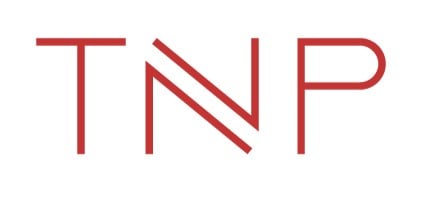

Head of legal and compliance | Rendeavour



Khadija Belgore-Yusuf
Head of legal and compliance | Rendeavour
Could you share an example of a time when you came up with an innovation that improved how your legal team works and did not come at a large expense?
I spearheaded the implementation of an optimised contract management system alongside the technology team. This involved the creation of templates across all areas of our operations and storage on a platform, leading to a notable reduction in the time devoted to routine contract review, and making the team available to address more intricate legal matters. This heightened overall efficiency and consistency in our contractual documentation.
In your role, how do you balance the need to protect the organisation’s interests today while also considering legal implications and opportunities that may arise in the future?
Striking the balance between safeguarding the organisation’s present interests and anticipating future legal implications requires fostering a forward-thinking legal culture. Regular legal training sessions, scenario planning, and collaboration with other non-legal teams ensure that legal considerations are woven into strategic decision-making processes.
How have you attempted to bring the legal department closer to your business colleagues?
I actively engage in cross-functional collaboration, participate in regular business meetings, and provide legal insights in a way that resonates with my non-legal colleagues. Hosting legal awareness sessions and workshops has proven effective in enhancing the overall legal understanding across our diverse teams.
How does the in-house legal function contribute to the overall dispute resolution strategy of the organisation?
I play a pivotal role in contributing to our organisation’s dispute resolution strategy. This involves both reactive and proactive measures, emphasising negotiation and alternative dispute resolution methods. Collaborating with external counsel ensures our strategies align.
What are some of the main trends in the industry sector you work in in Nigeria?
In the dynamic landscape of the Nigerian business sector, several noteworthy trends are reshaping the way businesses operate. One of the prominent shifts is the heightened emphasis on sustainability and ESG considerations. This growing awareness aligns with global standards and reflects a commitment to responsible business practices that extend beyond financial metrics.
Additionally, there is a noticeable surge in the integration of technology to enhance compliance practices. As businesses increasingly leverage technological solutions, compliance frameworks are adapting to ensure the ethical and lawful use of such innovations. Notably, the evolution of technology has spurred significant developments in Nigeria’s data protection laws.
The Nigeria Data Protection Act 2023 represents a pivotal shift from its predecessor, the Nigeria Data Protection Regulations 2019. This legislative evolution signifies a more comprehensive and contemporary approach to regulating the collection, processing, and use of personal data by both individuals and businesses.
The new Act is designed to address the intricacies and challenges posed by modern technology, providing a robust legal framework for data protection. It reinforces the rights of individuals regarding the control and security of their personal information, imposes obligations on data controllers and processors, and introduces mechanisms for enforcement and compliance.
This legal evolution underscores the Nigerian government’s commitment to ensuring that data practices align with international standards while fostering a secure and transparent digital environment for businesses and individuals alike. As businesses navigate this evolving legal landscape, a proactive approach to compliance becomes imperative, reflecting a commitment to ethical data practices and privacy preservation.
Have you used AI in your day-to-day work? If so, how useful do you find it?
I actively integrate AI into my daily legal operations. From legal research to contract review and due diligence, AI has proven invaluable in accelerating routine tasks while enhancing accuracy. Its practical application is transformative for our legal processes.
What are some of the main legislative or regulatory changes that have impacted you?
Legislative and regulatory changes have a tangible impact on my role. Recent data protection regulations, changes in tax laws, and evolving labour laws influence our data handling practices, financial planning, and HR policies. In addition, compliance with anti-money laundering laws in Nigeria has become increasingly pivotal. The stringent enforcement of these regulations necessitates meticulous adherence to Know Your Customer (KYC) procedures, due diligence, and the implementation of robust anti-money laundering measures.
Ensuring the company’s compliance with these regulations involves continuous monitoring, updating internal protocols, and providing training to relevant personnel. The evolving regulatory landscape demands a proactive approach to maintain legal and operational integrity.
Head. legal and compliance, Nigeria | Rendeavour
Head, legal and compliance, Nigeria | Rendeavour